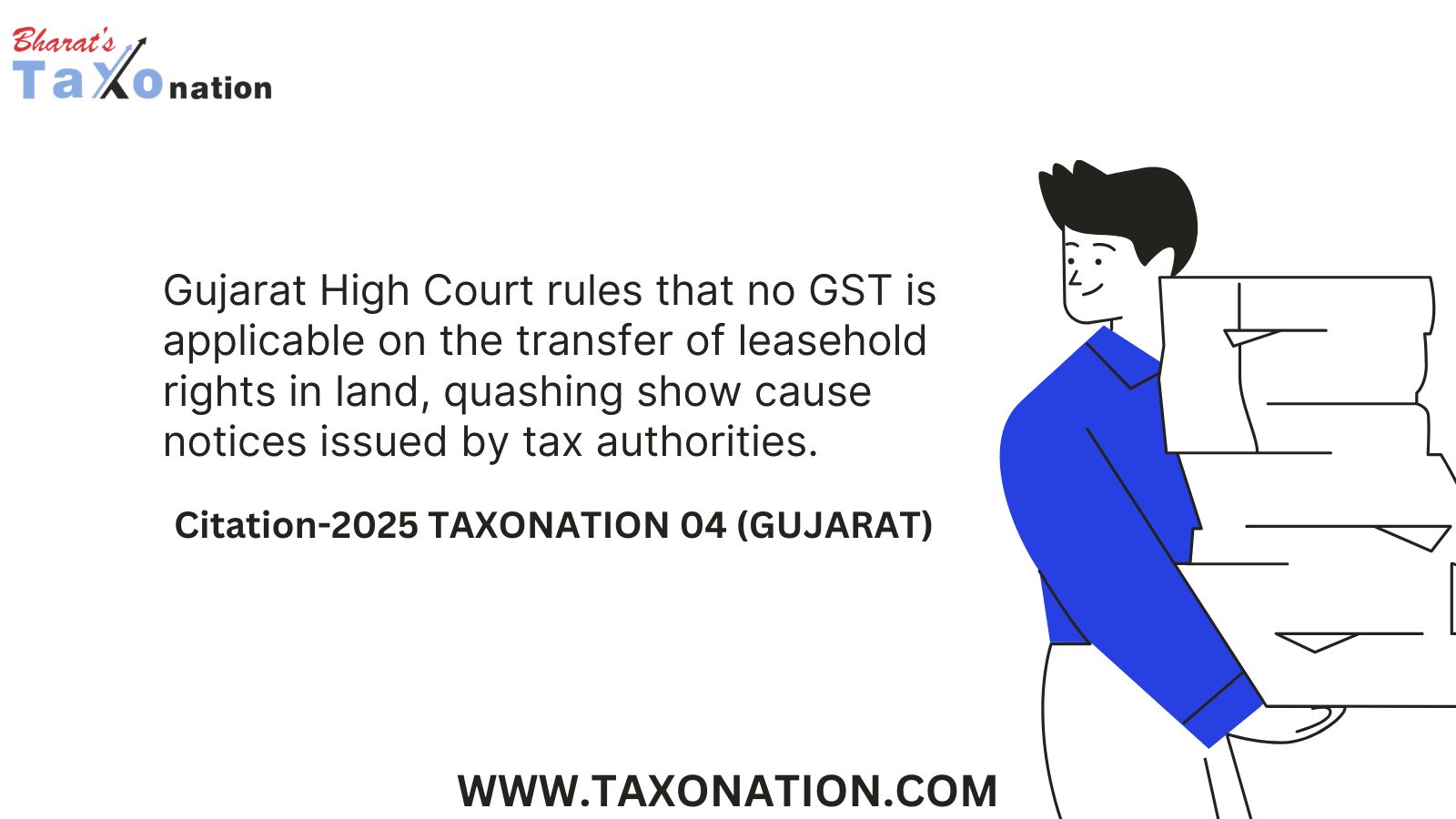
The Gujarat High Court recently deliberated on a contentious issue involving the levy of Goods and Services Tax (GST) on the assignment of leasehold rights in industrial plots. This judgment, delivered in a group of Special Civil Applications led by the Gujarat Chamber of Commerce and Industry, highlights critical aspects of taxation under the GST regime and its implications for industrial entities.
Background
The Gujarat Industrial Development Corporation (GIDC) develops industrial estates and leases plots for 99 years to industrial entities. These leases allow the lessee to transfer leasehold rights to third parties, subject to GIDC's approval. The dispute arose after the GST Act's introduction, where authorities began levying an 18% GST on transactions involving the assignment of leasehold rights. Several petitioners challenged this, arguing that these transactions should not attract GST as they involve immovable property.
Petitioners' Arguments
Nature of the Assignment: Petitioners contended that the assignment of leasehold rights represents the transfer of an interest in immovable property and does not constitute a "supply of service" under GST provisions.
Legal Framework:
Tax Exemptions: The petitioners also referred to exemptions under Notification No. 12/2017, which exempts one-time premiums for long-term leases of industrial plots granted by state industrial corporations.
Respondents' Position
The government argued that such assignments qualify as a supply of service under Section 7(1) of the GST Act. They relied on specific tariff entries and directives to justify the GST levy.
Key Issues
The court analyzed whether:
Court’s Observations
Nature of Transactions: The court noted that assignments of leasehold rights extinguish the assignor's interest and confer absolute rights to the assignee. Thus, they bear similarities to property transfers rather than service provision.
Scope of Supply: While the GST Act defines services broadly, the court emphasized the necessity of distinguishing services from property transfers. Including immovable property transactions within "services" stretches the term beyond its reasonable interpretation.
Input Tax Credit (ITC): Petitioners argued for ITC benefits if GST is levied, ensuring no cascading tax effects.
Implications
This case underscores the challenges in applying GST to real estate and property-related transactions. The judgment will likely impact:
Conclusion
The court's decision clarified that the assignment of leasehold rights should not automatically be treated as a "supply of service" under GST. The court emphasized that such transactions involve the transfer of rights in immovable property, which aligns more with property transfers than services. It also pointed out that the government cannot broadly interpret GST provisions to include immovable property transfers as taxable services.
GST Case Law Suyog Dye Chemie Private Limited & Ors vs UOI
CItation-2025 TAXONATION 04 (GUJARAT)
SUBSCRIBE GST E-LIBRARY (INDIA'S HIGHEST GST CASE LAW DATA)
FOR MORE UPDATE ON GST/ IT JOIN OUR FREE WHATSAPP GROUP BY CLICKING ON THIS LINK https://chat.whatsapp.com/C8VB6F6VHme3A061UDQKhj
Comment: